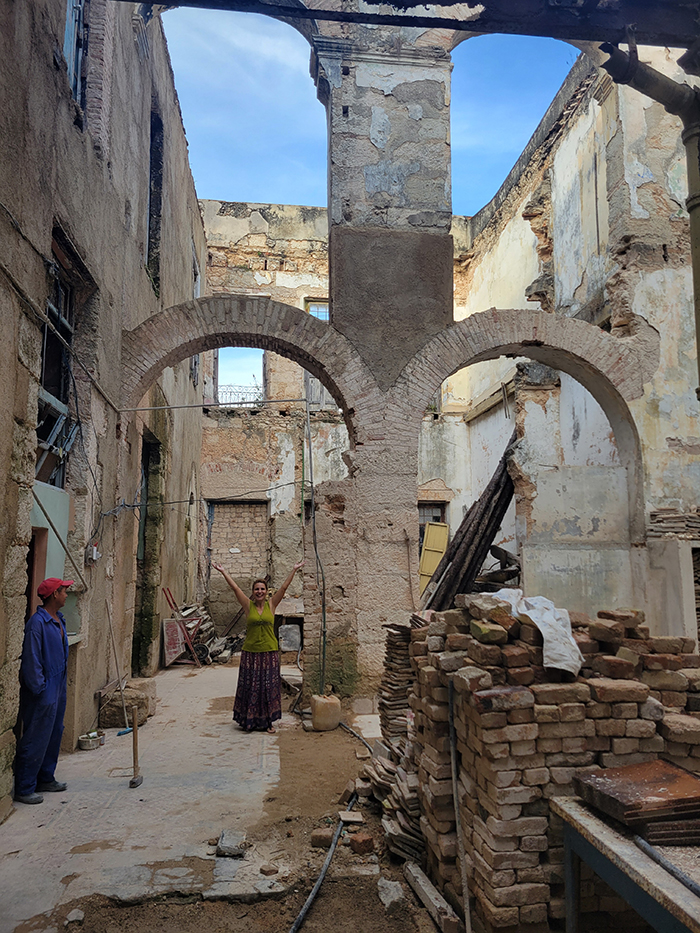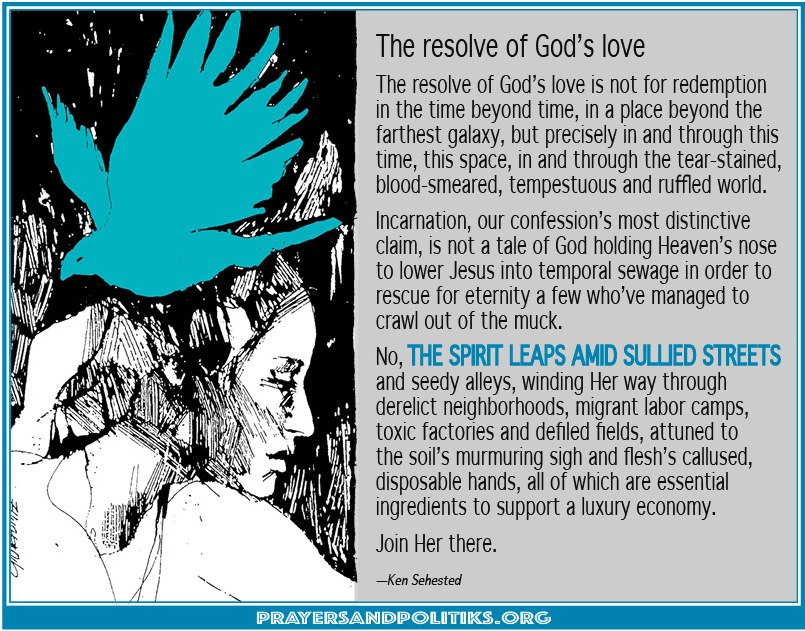US presidential quotes that might surprise you
Compiled by Ken Sehested
Invocation. “The President Sang Amazing Grace.” —Joan Baez
Call to worship. “Don’t go playing no shell game with God / Only Satan’s going to give you odds / We’re given love and love must be returned / That’s all the bearings that you need to learn.” —“Starwheel,” Bruce Coburn
§ § §
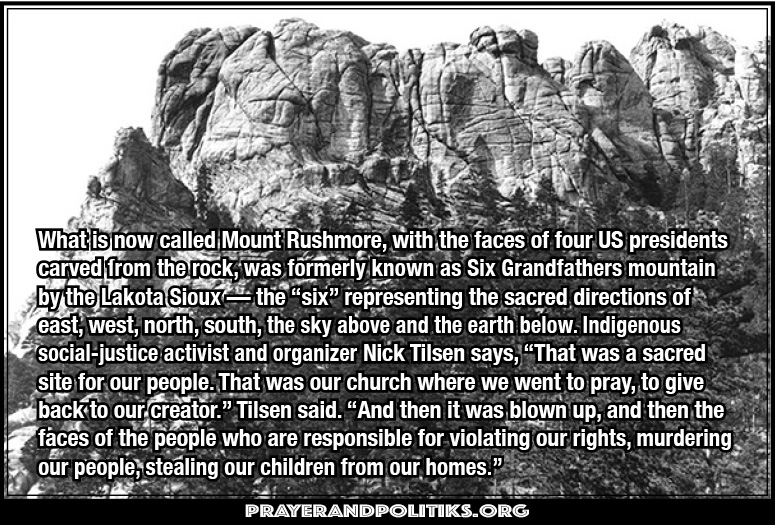
On the rule of mammon
¶ “I hope that we shall crush in its birth the aristocracy of our monied corporations, which dare already to challenge our government to a trial of strength, and bid defiance to the laws of our country.” —President Thomas Jefferson
¶ “The growing wealth acquired by [corporations] never fails to be a source of abuses.” —President James Madison
¶ “The money powers prey upon the nation in times of peace and conspire against it in times of adversity. The banking powers are more despotic than a monarchy, more insolent than autocracy, more selfish than bureaucracy. They denounce as public enemies all who question their methods or throw light upon their crimes. I have two great enemies, the Southern Army in front of me and the bankers in the rear. Of the two, the one at my rear is my greatest foe.” —President Abraham Lincoln
¶ “To befoul the unholy alliance between corrupt business and corrupt politics is the first task of the statesmanship of the day. All contributions by corporations to any political committee for any political purpose should be forbidden by law.” —President Theodore Roosevelt
¶ “If monopoly persists, monopoly will always sit at the helm of government. I do not expect monopoly to restrain itself. If there are men in this country big enough to own the government of the United States, they are going to own it.” —President Woodrow Wilson
¶ “In church it occurred to me that it is time for the public to hear that the giant evil and danger in this country, the danger which transcends all others, is the vast wealth owned or controlled by a few persons. Money is power. In Congress, in state legislatures, in city councils, in the courts, in the political conventions, in the press, in the pulpit, in the circles of the educated and the talented, its influence is growing greater and greater. Excessive wealth in the hands of the few means extreme poverty, ignorance, vice, and wretchedness as the lot of the many.” —President Rutherford B. Hayes
 ¶ “Behind the ostensible government sits enthroned an invisible government, owing no allegiance and acknowledging no responsibility to the people. To destroy this invisible government, to dissolve the unholy alliance between corrupt business and corrupt politics is the first task of the statesmanship of the day.” —1912 platform of the Progressive Party, founded by former president Theodore Roosevelt
¶ “Behind the ostensible government sits enthroned an invisible government, owing no allegiance and acknowledging no responsibility to the people. To destroy this invisible government, to dissolve the unholy alliance between corrupt business and corrupt politics is the first task of the statesmanship of the day.” —1912 platform of the Progressive Party, founded by former president Theodore Roosevelt
¶ “The test of our progress is not whether we add more to the abundance of those who have much; it is whether we provide enough for those who have too little.” —President Franklin D. Roosevelt
¶ “Socialism is a scare word they have hurled at every advance the people have made in the last 20 years. Socialism is what they called public power. Socialism is what they called Social Security. Socialism is what they called farm price supports. Socialism is what they called bank deposit insurance. Socialism is what they called the growth of free and independent labor organizations. Socialism is their name for almost anything that helps the people.” —President Harry S. Truman, 1952
¶ “A nation cannot prosper long when it favors only the prosperous.” —President Barack Obama, inauguration speech, 1.20.09
¶ “The greatest moral challenge of the 21st century is the chasm between the “haves” and the “have-nots.” —President Jimmy Carter
¶ “With all due deference to separation of powers,” Obama scolded, the [Supreme Court ‘Citizens United’] decision “will open the floodgates for special interests—including foreign corporations—to spend without limit in our elections.” —President Barak Obama in his 2010 State of the Union address to Congress (with all the Supreme Court justices sitting in front of him)
For more quotes from elected officials admitting the influence of corporate interests, see Jon Swarz, “Yes, We’re Corrupt: A List of Politicians Admitting That Money Controls Politics.” https://theintercept.com/2015/07/30/politicians-admitting-obvious-fact-money-affects-vote/
§ § §
Hymn of confession. “World’s in a Bad Condition” (when politicians, bankers and preachers are on the make). —bluesmen Dave Alvin and Phil Alvin https://www.youtube.com/watch?v=7wNsWftgQVQ
§ § §
The US as “exceptional” or “indispensable” nation and “manifest destiny”
¶ The idea of “American exceptionalism” is at least as old as when Puritan leader John Winthrop wrote in 1630 to describe the Massachusetts Bay Colony as a model Christian community.
¶ Journalist John L. Sullivan first used the phrase “manifest destiny” in an 1845 article for the Democratic Review arguing for the annexation of the Republic of Texas.
¶ US Secretary of State Madeleine Albright first claimed the US as “the indispensable nation” in justifying the US-led embargo on Iraq after the first Gulf War in 1991.
¶ Albright’s boss, President Bill Clinton, then used the phrase in his Second Inaugural Address in 1997.
¶ Then, in a 2012 commencement address to the Air Force Academy, President Barack Obama asserted that the US is “the one indispensable nation.”
¶ The French political theorist and historian Alexis de Tocqueville was the first writer to describe the US as “exceptional” in 1831 and 1840, in “Democracy in America.”
¶ But the more common reference began with Soviet leader Joseph Stalin (!) in criticizing the American Communist Party leaders for their belief that the US was above Marxist doctrine of the laws of history.
¶ “…our holy struggle for liberty and independence” that will be won “under Divine Providence.” —Confederate President Jefferson Davis, Feb. 1864, referring to the South’s war against the Union to preserve white supremacy and African slavery
¶ “I believe that God planted in us the vision of liberty. I cannot be deprived of the hope that we are chosen, and prominently chosen, to show the nations of the world how they shall walk in the paths of liberty.” — President Woodrow Wilson as Washington entered World War I
¶ “President Trump saying (with dramatic gesture) he is “the chosen one.” —0:47 video, 21 August 2019
¶ “The best that can happen to any people that has not already a high civilization of its own is to assimilate and profit by American or European ideas . . . of civilization and Christianity, . . . the prerequisite condition to the moral and material advance of the peoples who dwell in the darker corners of the earth.” —President Theodore Roosevelt
¶ “Wherever the standard of freedom and independence has been or shall be unfurled there will be America’s heart, her benedictions and her prayers. But she goes not abroad in search of monsters to destroy. She is the well wisher to the freedom and independence of all. She is the champion and vindicator only of her own. She will recommend the general cause by the countenance of her voice and by the benignant sympathy of her example. She well knows that by once enlisting under other banners than her own, were they even the banners of foreign independence, she would involve herself beyond the power of extrication in all the wars of interest and intrigue, of individual avarice, envy and ambition which assume the colors and usurp the standards of freedom. The fundamental maxims of her policy would insensibly change from liberty to force…she might become the dictatress of the world. She would no longer be the ruler of her own spirit.” —President John Quincy Adams, Washington D.C., July 4, 1821
¶ America is the “most just and virtuous republic ever conceived. Someday soon, we will plant the American flag on Mars.” —President Donald Trump, in his speech at the Lincoln Memorial, 4 July 2019
¶ On the eve of our entry into World War I, William Jennings Bryan, President Woodrow Wilson’s first secretary of state, described the United States as “the supreme moral factor in the world’s progress and the accepted arbiter of the world’s disputes.” —Chalmers Johnson, “Exporting the American Model: Markets and Democracy”
¶ “My working and personal relationship with President Obama is marked by growing trust. I appreciate this. I carefully studied his address to the nation on Tuesday. And I would rather disagree with a case he made on American exceptionalism, stating that the United States’ policy is “what makes America different. It’s what makes us exceptional.” It is extremely dangerous to encourage people to see themselves as exceptional, whatever the motivation. We are all different, but when we ask for the Lord’s blessings, we must not forget that God created us equal.” —Russian President Vladimir V. Putin
¶ In his statement on the killing [of Osama bin Laden], he [President Obama] said: “Tonight we are once again reminded that Americans can do whatever we set our minds to—we can do these things not because of our wealth and power, but 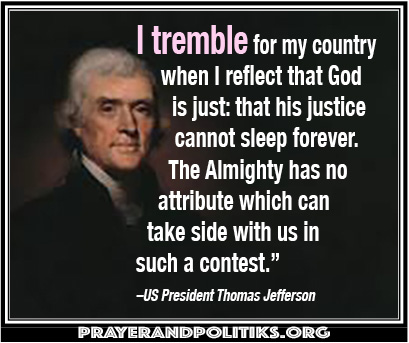 because of who we are, one nation under God indivisible, with liberty and justice for all.” —televised address, 2 May 2011
because of who we are, one nation under God indivisible, with liberty and justice for all.” —televised address, 2 May 2011
¶ President Franklin D. Roosevelt supposedly remarked in 1939 that [Nicaraguan dictator Anastasio] “Somoza may be a son of a bitch, but he’s our son of a bitch.”
¶ “The general spread of the light of science has already laid open to every view the palpable truth, that the mass of mankind has not been born with saddles on their backs, nor a favored few booted and spurred, ready to ride them legitimately, by the grace of God.” —President Thomas Jefferson
¶ “President George W. Bush reminded his people that the United States is ‘a nation founded under God and that from our very beginning we have relied upon His strength and guidance in war and in peace.’ Following the military victory, Bush spoke before the National Religious Broadcasters and thanked them for ‘helping America, as Christ ordained, to be a light unto the world.’ Bush declared that the teachings of Jesus had been the moral force behind the victory. When he ordered bombing in the ‘no fly zone’ of southern Iraq in the week before he left office, Bush stated that the bomber pilots had done the work of the Lord.” — Griffith, “The War on Terrorism and the Terror of God”
¶ “Oil is much too important a commodity to be left in the hands of the Arabs.” —Henry Kissinger, 1974, US Secretary of State under Presidents Nixon & Ford
§ § §
Altar call. “Let It Be Me.” —Indigo Girls
§ § §
Miscellaneous other presidential quotations
¶ “If I could save the Union without freeing any slave I would do it, and if I could save it by freeing all the slaves I would do it; and if I could save it by freeing some and leaving others alone, I would also do that.” —President Abraham Lincoln, 22 August 1862
¶ Listen to this video clip (1:53) from President Dwight D. Eisenhower’s “military industrial complex” speech warning about burgeoning military budgets.
¶ “[Thomas] Jefferson felt that the presidency created by the new Constitution was too strong. . . . He was especially concerned that an unscrupulous president might narrowly lose a bid for reelection and falsely insist that the contest had been stolen. ‘He will pretend false votes, foul play, hold possession of the reins of government, be supported by the states voting for him,’ Jefferson wrote to [James] Madison.” —Jeffrey Rosen, “The Nightmare of Despotism,” The Atlantic
¶“We can’t be both the world’s leading champion of peace and the world’s leading supplier of arms.” —President Jimmy Carter
¶ “We’ve been at war with 25 different countries or more since the Second World War. There were four years—I won’t say which ones—where we didn’t drop a bomb, we didn’t launch a missile, we didn’t fire a bullet.” —President Jimmy Carter, TED Talk, May 2015
¶ In the earliest days of our republic, there was little support for universal voting rights. John Adams, signer of the Declaration of Independence and later president, wrote in 1776 that no good could come from enfranchising more Americans: “Depend upon it, Sir, it is dangerous to open so fruitful a source of controversy and altercation as would be opened by attempting to alter the qualifications of voters; there will be no end to it. New claims will arise; women will demand the vote; lads from 12 to 21 will think their rights not enough attended to; and every man who has not a farthing, will demand an equal voice with any other, in all acts of state. It tends to confound and destroy all distinctions, and prostrate all ranks to one common level.”
¶ “I tremble for my country when I reflect that God is just: that his justice cannot sleep forever . . . The Almighty has no attribute which can take side with us in such a contest.” —President Thomas Jefferson
§ § §
Benediction. “Dark mother always gliding near with soft feet, / Have none chanted for thee a chant of fullest welcome? / Then I chant it for thee, I glorify thee above all, / I bring thee a song that when thou must indeed come, come unfalteringly. / Approach strong deliveress, / When it is so, when thou hast taken them I joyously sing the dead.” —excerpt from Walt Whitman’s “When Lilacs Last in the Dooryard Bloom’d,” written as an elegy followed the trauma of the US Civil War and President Lincoln’s assassination
Recessional. And in preparation for Ash Wednesday: “Create In Me.” —Acappella
# # #
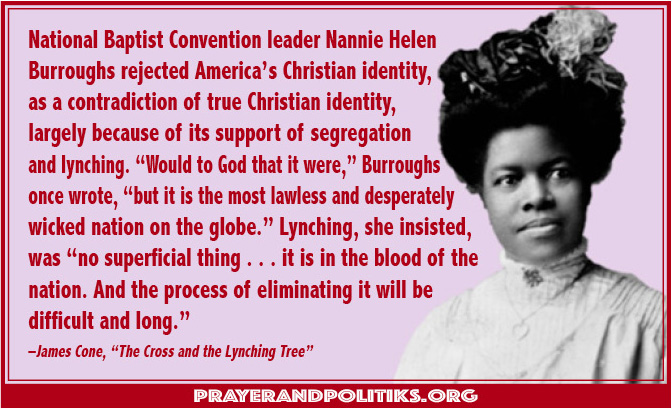



 ¶ “Behind the ostensible government sits enthroned an invisible government, owing no allegiance and acknowledging no responsibility to the people. To destroy this invisible government, to dissolve the unholy alliance between corrupt business and corrupt politics is the first task of the statesmanship of the day.” —1912 platform of the Progressive Party, founded by former president Theodore Roosevelt
¶ “Behind the ostensible government sits enthroned an invisible government, owing no allegiance and acknowledging no responsibility to the people. To destroy this invisible government, to dissolve the unholy alliance between corrupt business and corrupt politics is the first task of the statesmanship of the day.” —1912 platform of the Progressive Party, founded by former president Theodore Roosevelt because of who we are, one nation under God indivisible, with liberty and justice for all.” —televised address, 2 May 2011
because of who we are, one nation under God indivisible, with liberty and justice for all.” —televised address, 2 May 2011
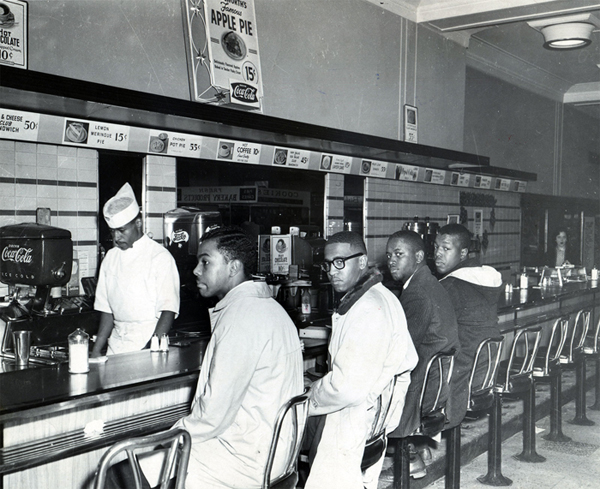
 s, and necessary funding. But the spark that prompted the blaze almost always came from localized leaders and networks.
s, and necessary funding. But the spark that prompted the blaze almost always came from localized leaders and networks.


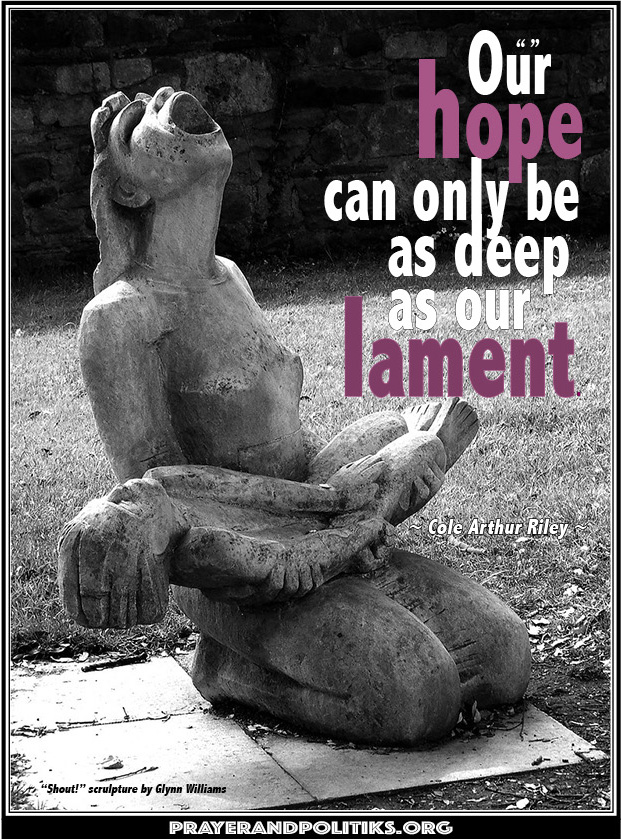


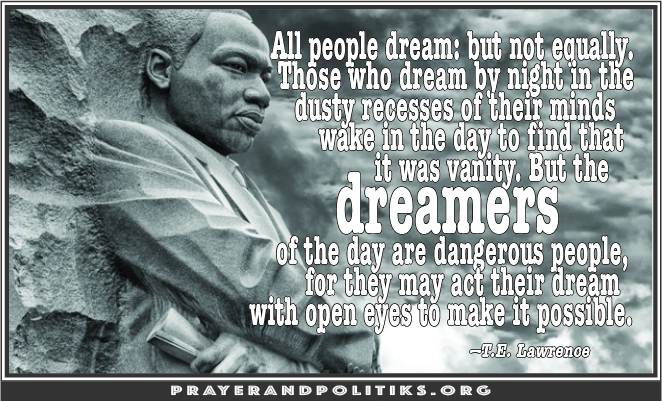 rights moments and luminaries. Flipping through, I turned to a photo showing Dr. King and his wife Coretta sitting at a piano, their infant daughter Yolanda perched on Martin’s lap as he and Coretta sang from an open hymnal.
rights moments and luminaries. Flipping through, I turned to a photo showing Dr. King and his wife Coretta sitting at a piano, their infant daughter Yolanda perched on Martin’s lap as he and Coretta sang from an open hymnal. Bethlehem’s animal feed trough serving as a crib for baby Jesus. In other traditions, the date is marked as the occasion of Jesus’ baptism. In some Eastern Orthodox traditions, 7 January (according to the older Julian calendar) is celebrated as Jesus’ birth—though, in Judaic calculation, a “day” begins on sunset the night before, as in the Genesis account of Creation: “And the evening and the morning were the first day” (Genesis 1:5).
Bethlehem’s animal feed trough serving as a crib for baby Jesus. In other traditions, the date is marked as the occasion of Jesus’ baptism. In some Eastern Orthodox traditions, 7 January (according to the older Julian calendar) is celebrated as Jesus’ birth—though, in Judaic calculation, a “day” begins on sunset the night before, as in the Genesis account of Creation: “And the evening and the morning were the first day” (Genesis 1:5).
 otherwise cheery voice. Every time I think we hit bottom, a basement appears. And again.
otherwise cheery voice. Every time I think we hit bottom, a basement appears. And again. Doing so requires being vulnerable in ways that seem risky. That doesn’t mean being foolhardy. It does mean critically examining our risk-avoidance habits. Faith in the Way of Jesus is inherently risky.
Doing so requires being vulnerable in ways that seem risky. That doesn’t mean being foolhardy. It does mean critically examining our risk-avoidance habits. Faith in the Way of Jesus is inherently risky.
